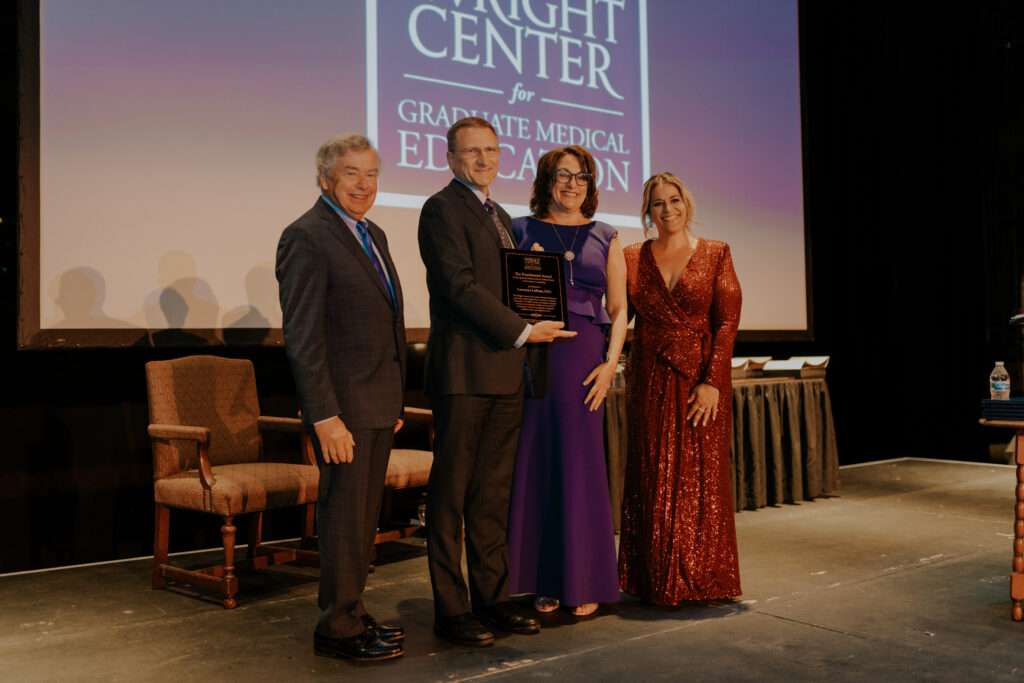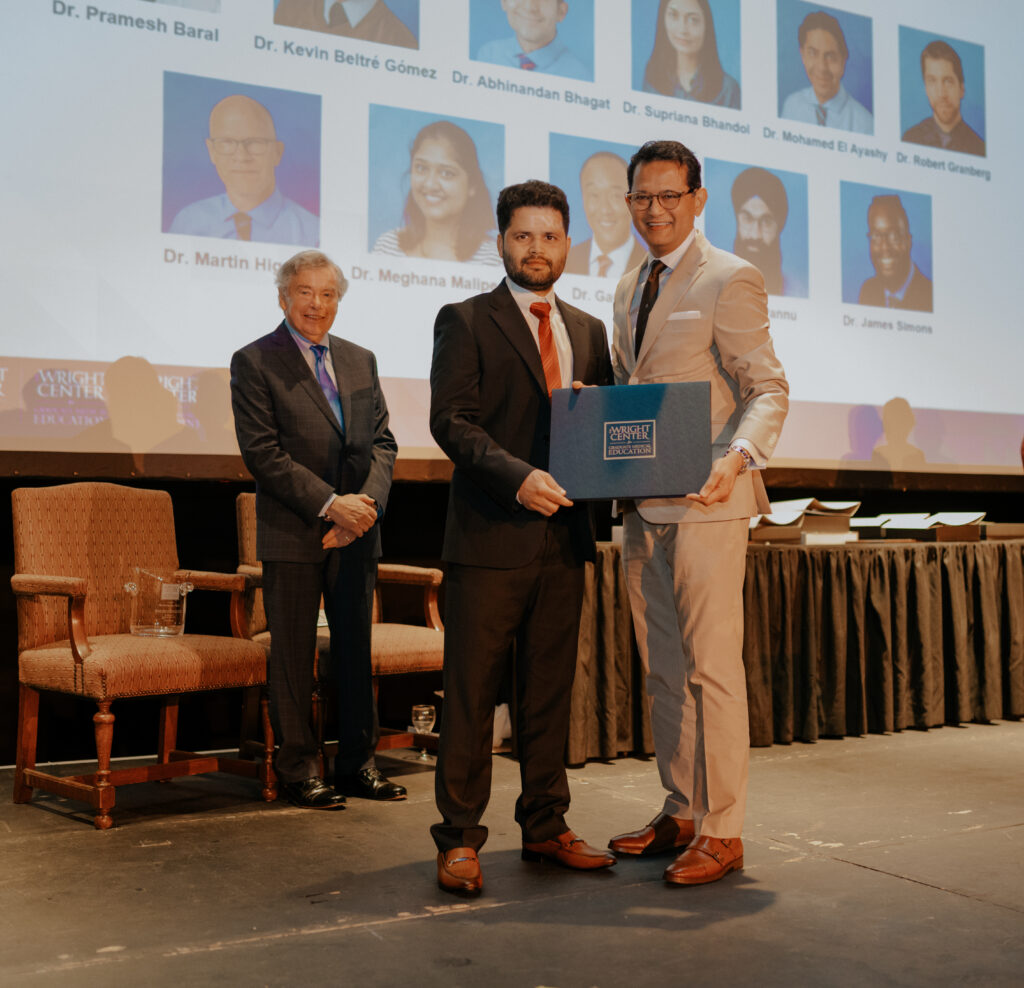News
Wright Center for Graduate Medical Education holds 44th annual graduation ceremony

More than 330 celebrate accomplishments of 80 resident and fellow physician graduates
The Wright Center for Graduate Medical Education recognized 80 resident and fellow physician graduates during the 44th annual graduation ceremony Saturday that featured a keynote address by violinist and composer Kai Kight.
More than 330 family members, friends, and staff joined the graduates at the annual program at the Scranton Cultural Center at the Masonic Temple. The Wright Center for Graduate Medical Education honored and recognized graduates from seven disciplines: Internal Medicine (35); Regional Family Medicine (11); National Family Medicine (17); Psychiatry (10); Cardiovascular Disease (4); Geriatrics (2) and Gastroenterology (1).
Before hearing from Kight, graduates were welcomed by The Wright Center for Graduation Medical Education’s Designated Institutional Official, Dr. Jumee Barooah.
“I am so proud of you for this accomplishment. And as a Wright Center graduate myself, I feel a special kinship with you,” said Dr. Barooah, an alumna of the Internal Medicine Residency. “We trained in similar learning environments. We embraced the same core values of The Wright Center. And we will forever share the same outlook on providing patient-centric health care while also remaining privileged to serve.” Dr. Barooah also acknowledged Dr. Samir Pancholy, program director of The Wright Center’s Cardiovascular Disease Fellowship, who was recently recognized by The Society for Cardiovascular Angiography & Interventions as one of its “Master Interventionalists.” Fewer than 100 doctors in the world hold this distinction. In addition, The Wright Center for Graduation Medical Education National Family Medicine Residency marked 10 years of training the next generation of physicians from coast to coast.

“The program’s innovative training model allows physicians to train in medically underserved areas throughout the nation, from rural Arizona to inner-city Washington, D.C.,” Dr. Barooah added. “We are grateful for the ongoing contributions of our national partners El Rio Health, in Tucson, Arizona; HealthSource of Ohio, in Hillsboro, Ohio; HealthPoint, in Auburn, Washington; and Unity Health Care, in Washington, D.C.”
Dr. Linda Thomas-Hemak, president and CEO of The Wright Centers for Community Health and Graduate Medical Education, thanked graduates for their dedication, especially during the turbulent times of the COVID-19 pandemic.
“At The Wright Center for Graduate Medical Education, we train and deliver great physicians to serve society,” she said. “Our community-health-needs-responsive graduate medical education programs are intentionally designed to engage patients and families and the communities we serve to teach, support, and inspire our residents and fellows to reach their full potential as highly skilled clinicians and servant leaders prepared and motivated to live up to society’s expectations of the noble profession of medicine.”

Kight, a graduate of Stanford University’s design and engineering program, the Stanford d.school, and the Behavior Design Lab, used music as a metaphor to inspire the Class of 2023 to compose paths of imagination and fulfillment.
“Through the music he composes and performs and the life stories and lessons he shares,” Dr. Thomas-Hemak said, “Mr. Kight … paradoxically challenges us to think introspectively and collectively about our own lives, our shared past and collective future, and the progressive human journey.”
Similar to Kight, The Wright Center sparks innovation in the delivery and accessibility of primary and preventive care and the cost-effective education and training of an inspired, competent physician workforce. The Wright Center for Graduate Medical Education is affiliated with The Wright Center for Community Health, which serves as the cornerstone ambulatory care delivery service organization of The Wright Center’s Teaching Health Center Graduate Medical Education Safety-Net Consortium, the largest in the nation funded by the U.S. Health Resources and Services Administration.

Together with consortium stakeholders, The Wright Centers for Community Health and Graduate Medical Education train primary care residents and fellows in a community-based, community-needs-responsive workforce development model to improve the health and welfare of communities through inclusive and responsive health services and the sustainable renewal of an inspired, competent workforce that is privileged to serve.
In July, The Wright Center for Graduate Medical Education will welcome 91 residents and six fellows to its regional and national residency and fellowship programs. The resident physicians will train in the following programs: Internal Medicine Residency (40); Regional Family Medicine Residency (13); National Family Medicine (20), Psychiatry Residency (13), and Physical Medicine & Rehabilitation (5). Fellows will also begin training in the Cardiovascular Disease (3), Gastroenterology (2), and Geriatrics (1) fellowships in July.








